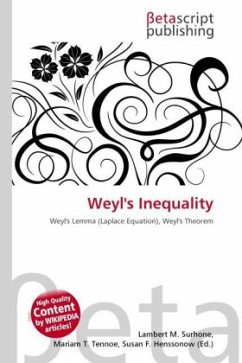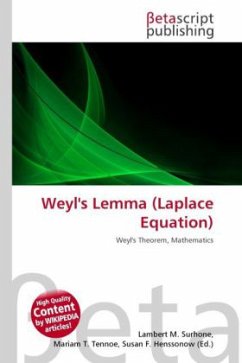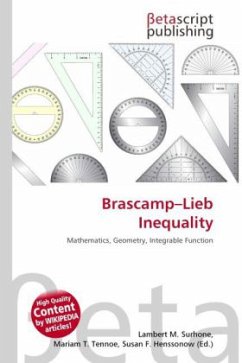
Weyl's Inequality
Versandkostenfrei!
Versandfertig in 6-10 Tagen
23,99 €
inkl. MwSt.

PAYBACK Punkte
12 °P sammeln!
High Quality Content by WIKIPEDIA articles! In mathematics, there are at least two results known as "Weyl's inequality". In number theory, Weyl's inequality, named for Hermann Weyl, states that if M, N, a and q are integers, with a and q coprime, q 0, and f is a real polynomial of degree k whose leading coefficient c satisfies c-a/q le tq^{-2},, for some t greater than or equal to 1, then for any positive real number scriptstylevarepsilon one has sum_{x=M+1}^{M+N}exp(2pi if(x))=Oleft(N^{1+varepsilon}left({tover q}+{1over N}+{tover N^{k-1}}+{qover N^k}right)^{2^{1-k}}right)text{ as }Ntoinfty. T...
High Quality Content by WIKIPEDIA articles! In mathematics, there are at least two results known as "Weyl's inequality". In number theory, Weyl's inequality, named for Hermann Weyl, states that if M, N, a and q are integers, with a and q coprime, q 0, and f is a real polynomial of degree k whose leading coefficient c satisfies c-a/q le tq^{-2},, for some t greater than or equal to 1, then for any positive real number scriptstylevarepsilon one has sum_{x=M+1}^{M+N}exp(2pi if(x))=Oleft(N^{1+varepsilon}left({tover q}+{1over N}+{tover N^{k-1}}+{qover N^k}right)^{2^{1-k}}right)text{ as }Ntoinfty. This inequality will only be useful when q












